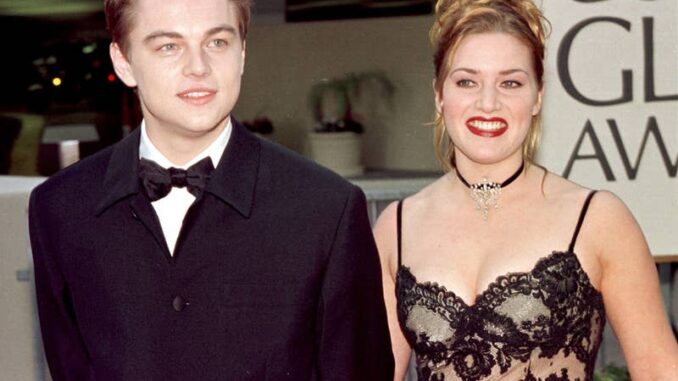
The legend of Titanic is as vast and deep as the ocean itself, encompassing not just its awe-inspiring scale and tragic love story, but also the myriad tales born behind the scenes. Among these, few sparkle with such illustrative power as the confrontation between a notoriously uncompromising director, James Cameron, and a rising star, Leonardo DiCaprio, over the simple act of an audition. This isn't merely a Hollywood anecdote; it's a microcosm of artistic will, the forging of greatness through friction, and the delicate balance between confidence and collaborative spirit that defines the industry's most enduring creations.
To understand the seismic collision of wills, one must first grasp the context. James Cameron, a director synonymous with pushing technological and narrative boundaries, was embarking on a project of unprecedented ambition. Titanic was not just a film; it was an engineering marvel, a historical recreation, and a high-stakes gamble on a scale rarely seen. For Cameron, every single component, every decision, and every cast member had to be meticulously chosen and rigorously tested. There was no room for doubt, no space for assumption. His vision was absolute, and he needed actors who were not only talented but also utterly committed to that vision, willing to submit to its demands. An audition, for Cameron, was not just a formality; it was a necessary crucible, a demonstration of an actor’s adaptability, their chemistry with potential co-stars, and their willingness to be directed.
On the other side of this impending showdown stood Leonardo DiCaprio. By the mid-1990s, DiCaprio was no longer a fresh face. He had delivered searing performances in films like What's Eating Gilbert Grape and commanded the screen in Baz Luhrmann's Romeo + Juliet. He possessed an undeniable charisma, an intense gaze, and a burgeoning fan base that hinted at superstardom. In the hierarchical world of Hollywood, reaching a certain level often means foregoing the audition process, especially for a major role. Actors of his caliber are typically offered parts, or perhaps participate in a "chemistry read" if specifically requested. For DiCaprio, who had already proven his dramatic prowess, the request to "audition" for a scene must have felt like a slight, a questioning of his established capability. It was a challenge to his burgeoning status, a perceived step backward.
The story goes that when DiCaprio arrived for what he thought was merely a meet-and-greet, he was informed that he would be reading lines with Kate Winslet, who was already cast as Rose. His response, reportedly, was a flat refusal: "I don't audition." This moment, pregnant with tension, illustrates the clash of two formidable forces: Cameron's unyielding artistic control and DiCaprio's burgeoning star power and pride. It wasn't just about an actor refusing a task; it was about two titans testing the boundaries of their respective domains. Had Cameron relented, it might have signaled a weakness in his authority, a crack in the foundation of the demanding production he was about to command. Had DiCaprio held his ground, he would have walked away from what would become a career-defining role, a decision that would have irrevocably altered cinematic history.
Cameron’s retort was swift, decisive, and characteristically blunt: "You read or you don’t get the part." This ultimatum perfectly encapsulates the director’s singular focus and unshakeable conviction. It stripped away any pretense of celebrity and brought the interaction back to its fundamental purpose: serving the film. It was a stark reminder that in Cameron’s universe, the project was paramount, and no individual, regardless of their star power, was above the essential requirements of the creative process. Faced with this unwavering stance, DiCaprio, after a moment of consideration, relented. He read the scene. And, as history attests, the chemistry between him and Winslet was electric, undeniable, exactly what Cameron had needed to see.
This narrative transcends a mere behind-the-scenes spat; it becomes an illustrative fable for the creative process itself. It highlights that true collaboration often requires a temporary submission of individual ego to a larger vision. It underscores the director's unique role as the ultimate arbiter, the one responsible for guiding and uniting disparate talents into a cohesive whole. And for DiCaprio, it was a pivotal lesson – a moment where the comfort of his rising fame met the raw demands of artistic integrity, forcing him to momentarily set aside his pride for a greater opportunity.
The near-loss of the Jack Dawson role for Leonardo DiCaprio for refusing to audition is more than just a footnote in Titanic's epic saga. It illustrates the necessary friction, the testing of wills, and the ultimate alignment of purpose that often precede the birth of extraordinary art. It is a testament to James Cameron's uncompromising vision and, crucially, to Leonardo DiCaprio's ultimate willingness to be directed, to submit to the process, and in doing so, to embark on a journey that would forever cement his place as one of Hollywood's most iconic stars. It’s a vivid reminder that even legends must sometimes step into the audition room, not just to prove their talent, but to affirm their commitment to the shared dream.
